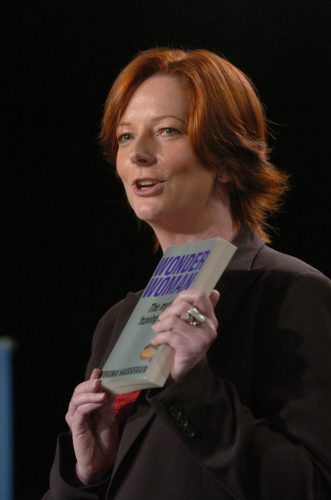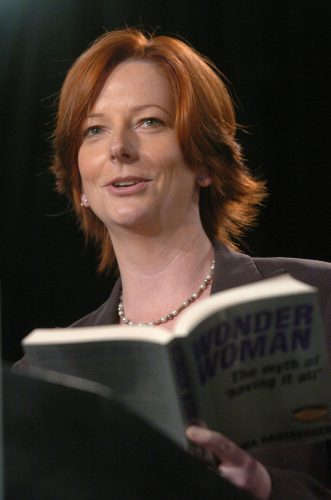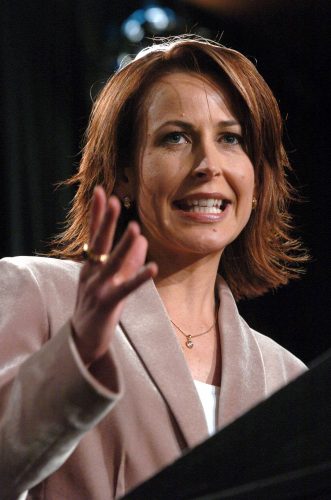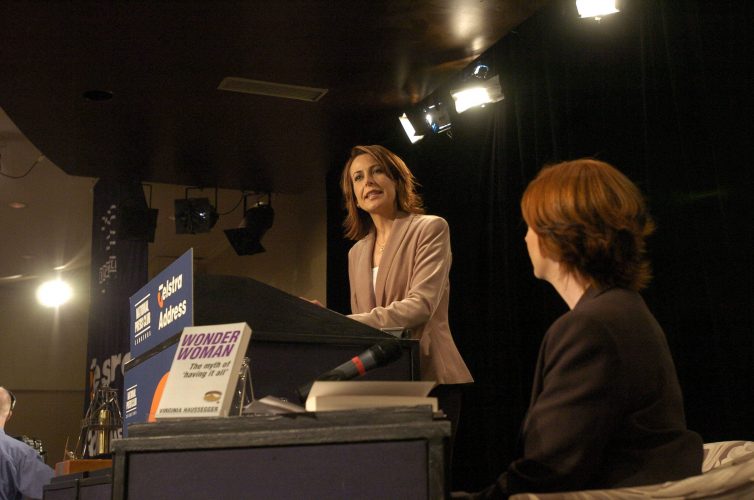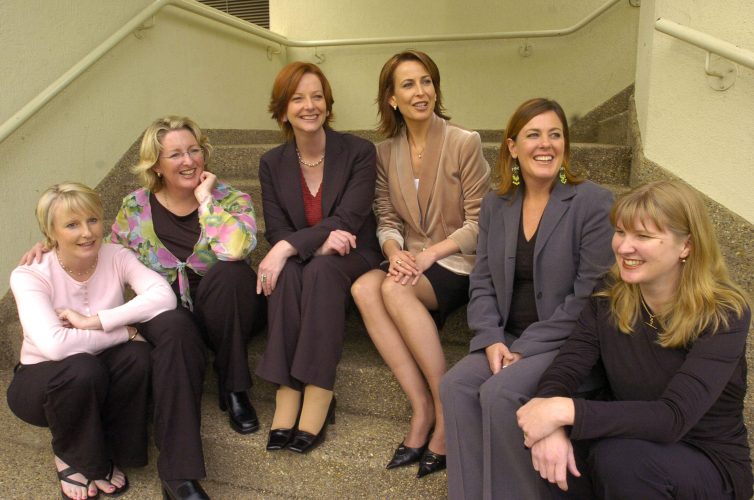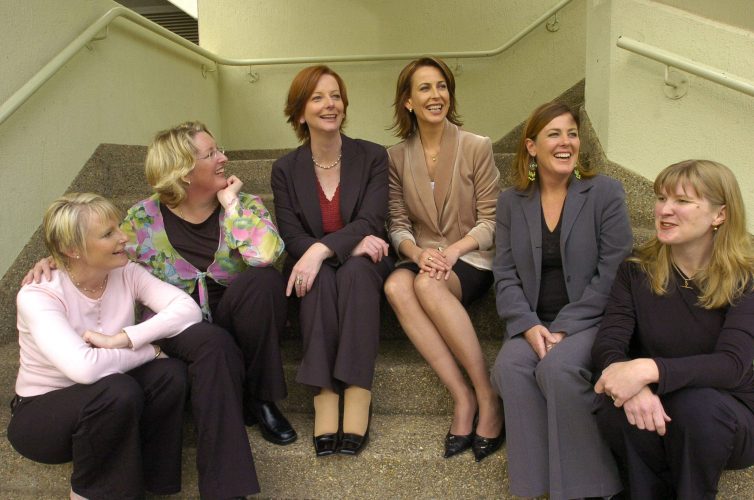Brendan Nelson began in splendid spirit, and Lily Arthur was ready to hang on his every word. By the time he got to his feet in Parliament on Wednesday, many hearts had opened and softened. Those who previously felt no particular connection with Australia’s indigenous people were now surprised by their own emotional response to this moment.
Prime Minister Kevin Rudd’s apology to the Stolen Generations, for past government actions and policies of separation steeped in racism, was a sobering reflection on our history. For some of us it was an awakening: a moment of new understanding. It was as if a deep cultural faultline had shifted.
When Nelson said, ”Today our nation crosses a threshold,” you could feel a national murmur of agreement. And it was in that spirit that we continued to listen solemnly, respectfully. Until suddenly the brakes slammed on, and this gentle journey turned into a car crash of a speech.
Without warning, smashed-up images of Aboriginal rapes and little girls being drowned and petrol- sniffing teenage criminals and drunken Aboriginal men sexually abusing babies were flung out at the audience. It was as if Nelson’s focus had suddenly shifted to the narrow audience of naysayers in his party, whose support he needs for his tenuous grip on leadership. Had he forgotten the Aboriginal elders present, the sons, the daughters, the broken families, many who’d travelled many kilometres and waited years for this day?
Of course no society can excuse the inexcusable. But at this moment Nelson’s timing was way off, his insensitivity breathtaking.
In the Great Hall of Parliament some had already turned their backs, when the Opposition Leader suggested Aboriginal separations were well intentioned. By the time he got to the sexual deviants bit, the audience was booing, jeering and clapping in unison to try to drown him out.
Sitting halfway down the hall was a lone woman, with a tear-stained face, desperately wishing they’d all shut up and be quiet. She wanted to hear what Nelson had to say. She’s a true believer in the right to be heard. Perhaps because she knows too well what it feels like when no one will listen.
Lily Arthur is white and of English stock, yet she understands the pain felt by the Stolen Generations more than most. She wasn’t there to hear ”sorry” said to her, but to hold the hands of her Aboriginal friends at this emotional time. She was supposed to be the ”support” person, but soon found she was the one needing support.
Her distress was triggered by something Nelson said, that others seemed to miss. He mentioned that his own father had been removed ”from his unmarried teenage mother”. Then Nelson went on to say, ”not knowing who you are is the source of deep, scarring sorrows”. That’s when Lily lost it.
Forty-one years ago she had her baby ripped away from her in the labour ward of a Queensland hospital. She didn’t even get to give her son a name. For four long decades Lily has lived with the shame and seemingly incurable pain of being a so-called ”relinquishing mother”.
In 1967, unmarried and pregnant at 17 years old, Lily was deemed by the state to be in ”moral danger”, despite being legally past the age of consent. She was dragged out of the flat she was sharing with her boyfriend, incarcerated, and then put to work in a commercial laundry run by Catholic nuns, for which she never received a day’s pay.
Lily was told her child would be made a ward of the state and placed in a foster home, unless she agreed to relinquish him for adoption. Adoption was framed as the only opportunity for her child to have ”a good and decent life”. Eight days after the birth, having never laid eyes on her baby, and dulled by sedatives given to her by the nursing staff, she agreed to sign adoption papers. It was only then that she was allowed to see her son, for a few brief minutes.
For decades afterwards, Lily says, she had a continuous newsreel running though her head, with a screaming headline, ”Where’s my baby?”
Adoption reached a peak in Australia in 1972, with 4500 babies in NSW alone signed over by young, unwed mothers, to mostly infertile and needy couples. Back then, the demand for healthy, white babies was high, as few couples wished to remain childless.
Just as Aboriginal mothers were deemed not fit to raise their own children during that dark period in Australia’s history, so too were tens of thousands of white women deemed immoral if they were to give birth out of wedlock.
Like their indigenous sisters, these young mothers were bullied, coerced, tricked and lied to by the state.
A report into adoption practices in NSW from 1950 to 1998, aptly titled Releasing the Past, makes it clear that various methods used to encourage young women to give up their babies contravened adoption law.
Lily has tried dealing with the pain of her loss by taking a claim of ”baby theft” to court.
But her son’s birth was such a long time ago. Hospital documents have gone missing, nursing staff can no longer be found. And there is little political or legal will to allow these aggrieved mothers – who have become shattered and shamed women – to prise open their wounds for the wider public to see.
Seated in the Great Hall this week, Lily wondered out loud if the Government would ever apologise to her and the tens of thousands of women like her.
But there was such a din in that place, no one heard her.
